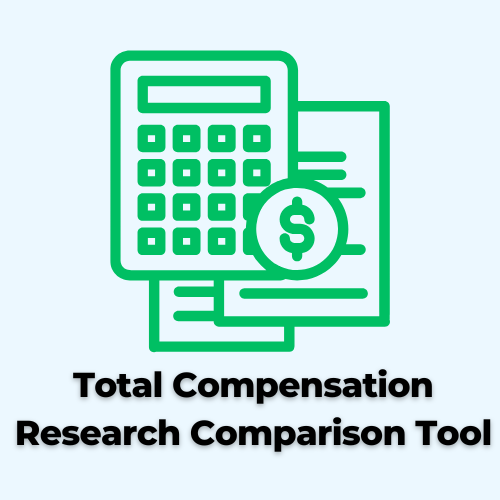Financial Analyst Salary Negotiation: How to Negotiate a Financial Analyst Salary
From banks to government agencies to large corporations, there’s a wide and far-reaching demand for financial analysts today. If you’ve been navigating the job search and interview process for one of these roles, then you know just how in-depth the process can be.
So as exciting as finally receiving a financial analyst job offer may be, there’s still one important step to take: negotiating your financial analyst salary.
Negotiating a financial analyst salary doesn’t have to be difficult or intimidating. After all, you already have the financial literacy, research skills, and decision-making abilities needed for a successful negotiation—you just need to know how to leverage them appropriately.
In this article, we are going to share with you our proven negotiation strategies that will help you increase your compensation and total career earnings. Ultimately, your efforts as a financial analyst will help maximize profits at whatever company you work for. Negotiating your job offer to maximize your own earnings gives you the perfect opportunity to highlight these skills.
In the following sections, we will walk you through our step-by-step negotiation process that’s based on years of insight and experience. By following our strategies, you will be prepared to face your financial analyst salary negotiation with confidence and success.
Want to Negotiate Your Offer? Get offer-specific guidance from a Salary Negotiation Coach. We help financial analyst negotiate competitive job offers.
Or leverage our Salary Negotiation Courses and Salary Negotiation Templates.
 Job Offer Negotiation Course
Job Offer Negotiation Course
- Get our job offer negotiation strategies, templates, scripts, and guidance.
- Access our step-by-step lessons, compensation research guides, and tools.
- Access Now
 Raise Negotiation Course
Raise Negotiation Course
- Get our raise negotiation strategies, templates, scripts, and guidance.
- Access our step-by-step lessons, compensation research guides, and tools.
- Access Now
Understanding the Compensation Components of a Financial Analyst Salary
The first thing you should do after receiving any job offer is evaluate each of its compensation components carefully. A successful negotiation depends on having a thorough understanding of what’s included in your offer.
As a financial analyst, your job offer will include various compensation components that will make up your total yearly compensation. So don’t make the mistake of only focusing on your base salary.
In fact, many financial analysts will also be offered an annual performance bonus, initial equity package, sign-on bonus, and other benefits like remote work flexibility. It’s critical to consider all these different elements carefully so that you can evaluate (and eventually negotiate) your offer accurately.
For example, here is what an Amazon senior financial analyst salary may look like in their initial offer:
Amazon financial analyst salary
So even if your financial analyst offer seems great, you can’t really know how competitive it is until you dig into each of its various elements. In the following section, we will go over some of the most common financial analyst salary components in more detail.
FINANCIAL ANALYST SALARY
The first compensation component we are going to break down is your financial analyst base salary. As you’re probably aware, your base salary is the fixed guaranteed pay that you receive in exchange for the work you do.
What you might not be aware of, however, is how your base salary is determined.
At most companies, each different level of financial analyst will have a different base pay range associated with it. Each range will have a preset minimum and maximum amount that controls what your base salary can be.
For example, the pay range for an entry level financial analyst salary would be different from the range for a senior financial analyst salary at the same company. And the same goes for roles across different companies (i.e., an IBM financial analyst salary will differ from an Google financial analyst salary).
So why does knowing the pay range for your role matter?
Most of the time, initial job offers will not come in at the top end of their pay bands. So by knowing what the pay range for your specific role type is, you can negotiate your base salary to the top end of that range.
FINANCIAL ANALYST PERFORMANCE BONUS
Most financial analysts will also be offered an annual performance bonus in their compensation packages.
For those who are unfamiliar with these kinds of bonuses, an annual financial analyst performance bonus is typically a percentage of your base salary that’s dependent on both company and personal performance. What this means is that your bonus could go up or down depending on the targets you or the company you work for hit.
While it’s possible that you or your company could outperform your goals and exceed the target percentage for your bonus, it’s not very likely. Instead, you should assume the average bonus payout when evaluating this component of your compensation package.
The great thing about financial analyst performance bonuses is that they can make a huge difference in your total yearly compensation. While these bonuses are typically non-negotiable, don’t forget that your bonus is usually a percentage of your base salary—meaning the higher you negotiate your salary, the higher your bonus could be.
FINANCIAL ANALYST EQUITY PACKAGES
The next element of your job offer to consider is your equity package. Financial analyst equity is a highly sought-after compensation component in these types of roles.
As a financial analyst, you probably already understand how equity packages work. Nevertheless, here’s a quick reminder: the equity in your compensation package could be offered either as RSUs (restricted stock units or restricted stock awards) or stock options. This grant will include a bundle of shares or options that vest over a defined timeframe (i.e., four years), called a vesting schedule.
Fortunately, financial analyst equity can make a huge difference in your total compensation. However, as you know, the value of your equity will fluctuate based on the market value of the company you work for. So if you secure a Salesforce financial analyst salary offer, you’ll benefit if Salesforce’s share value goes up, but you’ll take a loss if Salesforce’s share value goes down. And remember that if you leave the company before the equity vests, you risk forgoing it all together.
On the bright side, we’ve found that equity is usually negotiable for financial analysts which is why you should almost always push more equity in your negotiation.
FINANCIAL ANALYST SIGN-ON BONUS
Most financial analysts will also receive a sign-on bonus in their job offers—it just might take some negotiating first.
A financial analyst sign-on bonus is a one-time bonus that works as an incentive to join the company or to cover any lost bonuses or unvested equity at your current job. Not all companies provide sign-on bonuses initially, so it’s essential that you learn how to negotiate for one.
Fortunately, we’ve had success over the years securing large signing bonuses—even when the job seeker wasn’t walking away from money at their current company.
Most financial analyst sign-on bonuses are paid in one lump sum within the first 30 days of employment. And if you leave the company within your first year (or other designated timeframe), you might have to pay the bonus back. However, every company approaches sign-on bonuses differently. For example, the Amazon financial analyst salary will include sign-on bonuses in year one and year two—which can be paid out monthly instead of in one lump sum payment.
FINANCIAL ANALYST EQUITY REFRESHER
Another element of your compensation package to consider is your financial analyst equity refresher. While it’s possible to receive an equity refresher (more stock) in your initial offer, you’ll find that most recruiters withhold the stock refresher details. This practice is common for Meta financial analyst salary offers and other industries that offer this annual equity perk.
During your negotiation, we recommend that you ask the hiring team to provide more details about the amount and timeline of the stock refresher. However, don’t be surprised if they insist on withholding these specific details.
Since it’s often challenging to compare this benefit across different financial analyst job offers, we don’t include this component in our total compensation calculation.
BENEFITS AND PERKS FOR FINANCIAL ANALYSTS
Benefits will look very different for financial analysts depending on the company they work for. However, some of the most common benefits for these types of roles are things like unlimited vacation, parental leave, or even fitness memberships.
One of the top perks for many financial analysts is the ability to work remotely (which we recommend bringing up during the interview process). Unfortunately, most other benefits and perks are usually non-negotiable. However, it’s possible to sometimes get changes approved via an under-the-table agreement with your future hiring manager (i.e., your manager will be more flexible with your PTO).
Five Key Steps to Negotiate a Financial Analyst Job Offer
Now that we’ve gone over the different elements of your job offer, it’s time to explain how you can leverage that information to negotiate for an improved compensation package.
However, the negotiation strategies we outline below should only ever be used after you have received an official offer—never before. Based on years of experience helping hundreds of career professionals successfully negotiate their job offers, we’ve found that you should almost always wait to begin negotiations until you have an offer in hand. Having an actual offer will give you more leverage to negotiate and you’ll be less likely to make mistakes like disclosing your salary expectations to the recruiter too early.
Once you’ve received an offer, the steps listed below will guide you through our proven strategies for negotiating a financial analyst salary. While these are the key steps to a financial analyst salary negotiation, we strongly recommend financial analysts work with a Salary Negotiation Coach to guarantee success and get all of our strategies.
1) UNDERSTAND THE COMPONENTS OF YOUR FINANCIAL ANALYST SALARY
This first step in our strategy should be easy since we’ve already completed it.
As a reminder, make sure to review your financial analyst salary for a base salary, performance bonus, initial equity grant, sign-on bonus, and any benefits and perks. Understanding the ins and outs of your total compensation package is necessary for any successful negotiation.
If you need help, you can also use our Total Compensation Calculator to calculate your compensation components in this step if needed.

- Understand Total Compensation – Use our tool to break down and calculate the compensation in your job offer.
- Research & Compare Offers – Organize your compensation research and determine the right counter amount.
- Get Here
2) COMPLETE DUE DILIGENCE ON YOUR FINANCIAL ANALYST JOB OFFER BY ASKING THE RIGHT QUESTIONS
One of the most important parts of a negotiation is asking strategic questions.
Asking the right questions not only helps you establish an effective financial analyst salary counter, but it also communicates to the recruiting team that you are serious about the job offer.
We suggest starting this phase of the negotiation right after you receive your offer. You should begin by asking for clarity on any items that the recruiter may have been vague about (i.e., What is the expected equity refresher each year for this role?). Each of the answers you collect will include important data points you can use in your counteroffer.
Even if you’re confident that you already understand all the various aspects of your compensation package, we still recommend that you ask questions. If you’re not sure what to ask, you can use our list of Strategic Questions to Build Negotiation Leverage.

- Build Negotiation Leverage – Ask the right questions to strengthen your negotiation before sending a counter.
- Email & Phone Scripts – Get our list of questions to ask and what to say if the recruiter wants to chat through them.
- Get Here
3) RESEARCH TO IDENTIFY WHAT FINANCIAL ANALYST SALARY SHOULD LOOK LIKE
Since the salaries for financial analysts will vary by company, you will need to spend some time researching pay ranges for your specific role. Doing so will help you understand the strength of your current offer and identify how much you should counter for.
It’s important that you make sure your research is specific to your exact role type and level (i.e., is it a senior financial analyst salary or an entry level financial analyst salary) and where it’s located, whether that be in-person, hybrid, or remote.
There are many online resources you can use in your research, such as PayScale or Comparably. However, keep in mind that ranges on these types of sites are publicly reported by current or past employees, meaning the pay they indicate could be different from what is now offered to new employees. If you compare pay data across multiple sites, you should be able to pull together the most accurate information.
Here’s something else key to remember: in any job offer you accept, you’ll ultimately be expected to manage the same responsibilities as anyone hired for that same position. Because of this, we recommend that you push for at least the mid- to top-end of the total pay range for your specific financial analyst role—regardless of your experience or background. You can use our Total Compensation Research Comparison Tool to help you with your compensation research and identify the pay ranges.

- Understand Total Compensation – Use our tool to break down and calculate the compensation in your job offer.
- Research & Compare Offers – Organize your compensation research and determine the right counter amount.
- Get Here
4) SEND A FINANCIAL ANALYST COUNTEROFFER TO THE RECRUITER
It’s finally time for the part you’ve been waiting for: sending over your financial analyst counteroffer.
At this point, you should be ready to present your counteroffer to the recruiter by referencing your pay range data findings and how the benefits in your offer differ from other companies and/or your current role.
Even though you can present your new ask over the phone, we always recommend you do so via email. Drafting an email gives you the time to write out exactly what you want to say. You’ll be more likely to stay on topic and you’ll also be giving the recruiter something they can forward on and share internally with their team.
As with every step in the job search and negotiation process, make sure that you present your counteroffer professionally and kindly. To ensure proper communication, use our Counteroffer Drafts for examples to help you formulate a strategic counteroffer.

- Proven Counteroffer Templates – Built from hundreds of successful job offer negotiations.
- Negotiate with Confidence – Remove the guesswork with our professionally crafted counteroffers.
- Get Here
5) HANDLE ANY OBJECTIONS AND KNOW YOU ACHIEVED THE BEST FINANCIAL ANALYST SALARY
It might only take one counter and the hiring team will respond with an updated offer package. If that happens, great! However, it’s more likely they will come back to you with a list of reasons why they can’t make any increases to the financial analyst salary.
If you’re faced with these objections, respond professionally by stating you understand their constraints, but ask again if they could take your thoughts back to their team for one last look. You should still ask even if they insist their team will just say no and continue to follow our Objection Handling Scripts.

- Overcome Recruiter Pushback – Proven scripts to handle pushback and keep your salary negotiation on track.
- Communicate Effectively – Use expert responses to get recruiters to advocate for you with the compensation team.
- Get Here
Once they agree to take your counter back to their team, they should return with a better offer. If the new compensation package aligns with the pay bands you researched and meets your needs, you should be ready to provide them with an offer acceptance email.

- Accept or Decline – Expert crafted job offer acceptance email and rejection email templates to share your decision.
- Professional & Genuine Tone – These help you communicate in a professional manner regardless of what you decide.
- Get Here
Congratulations on your successful financial analyst job offer negotiation!
Mistakes to Avoid During a Financial Analyst Salary Negotiation
Before wrapping up, we wanted to share with you a few common mistakes job seekers make during the salary negotiation process. Below you’ll find some of the top things you should make sure you avoid when you negotiate your financial analyst salary.
AVOID SHARING SALARY EXPECTATIONS BEFORE YOU GET A FINANCIAL ANALYST JOB OFFER
Did you know that sharing your salary expectations too early often works against you when trying to receive a fair job offer?
Here’s why you should never share your salary expectations before you receive an official offer: If you share a lower salary expectation than what the company could offer, they will be incentivized to now offer you that lower compensation. On the flip side, if you share a number higher than what they could offer, there is a chance that they could become disinterested and choose to go with a different candidate over you.
Never forget that recruiting teams are working for the company, not you.
It also doesn’t make much sense to discuss salary expectations before you learn more about the specific financial analyst role, its total compensation package, and whether those elements feel like a good fit for you. After all, you’re also interviewing them to see if this role is something you want to pursue so be sure to overcome these tactics by responding like this.

- Salary Expectation Responses – Scripts to overcome recruiter salary expectation discussions and pre offer calls.
- Avoid Lowballing Yourself – These call scripts and email templates will help you get a competitive offer.
- Get Here
DON'T BE AFRAID TO NEGOTIATE A FINANCIAL ANALYST JOB OFFER
Too many job seekers shy away from negotiating even if it means increasing their total career earnings. In many cases, job candidates don’t negotiate because they fear offending the recruiting team or losing the job offer altogether.
However, you’ll be encouraged to know that we’ve helped facilitate hundreds of successful salary negotiations and we’ve never seen a company rescind a financial analyst job offer because of an attempted negotiation. Don’t let salary negotiation myths keep you from negotiating for improved compensation.
BE REALISTIC BY DOING YOUR FINANCIAL ANALYST SALARY RESEARCH
Financial analyst roles are in high demand and do pay well; however, you should still be realistic about what compensation you ask for.
Make sure that your research is thorough so that you only push for compensation that the company can realistically provide. For example, the compensation package for a financial analyst role at Apple might look different than the compensation package for the same role at Microsoft.
Financial Analyst Salary Negotiation Coaching & Tools
Increasing financial analyst compensation requires a deep understanding of the company’s compensation philosophy and the right salary negotiation strategy. Our expert Salary Negotiation Coaching will help you navigate the financial analyst salary negotiation process and secure the top end of the pay band.
Or leverage our Salary Negotiation Courses and Salary Negotiation Scripts.
 Job Offer Negotiation Course
Job Offer Negotiation Course
- Get our job offer negotiation strategies, templates, scripts, and guidance.
- Access our step-by-step lessons, compensation research guides, and tools.
- Access Now
 Raise Negotiation Course
Raise Negotiation Course
- Get our raise negotiation strategies, templates, scripts, and guidance.
- Access our step-by-step lessons, compensation research guides, and tools.
- Access Now



